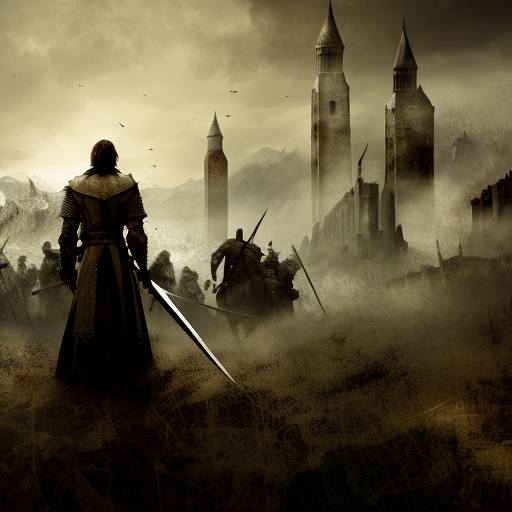The Last Kingdom: A Tale of War, Loyalty, and Identity
In Bernard Cornwell’s historical novel “The Last Kingdom,” we are transported to 9th century England, where the Anglo-Saxon kingdoms are under constant threat from Viking invaders. Through the eyes of the protagonist, Uhtred of Bebbanburg, we witness the clash of cultures, the struggle for power, and the quest for identity in a time of war and uncertainty.
The Clash of Cultures: Anglo-Saxons vs. Vikings
“The Last Kingdom” vividly portrays the clash between the Anglo-Saxon and Viking cultures. Uhtred, a young nobleman of Northumbria, finds himself torn between his Anglo-Saxon heritage and the Viking warriors who have captured him. As he grows up among the Danes, he becomes enamored with their way of life, their gods, and their fierce fighting skills. However, he is constantly reminded of his English roots and the duty he owes to his people.
The novel explores the complex relationship between the two cultures, highlighting the similarities and differences between them. While the Anglo-Saxons value stability, law, and Christianity, the Vikings are driven by a thirst for adventure, glory, and the worship of Norse gods. Uhtred’s internal struggle reflects the larger conflict between these two worlds, as he grapples with questions of loyalty, identity, and where his true allegiance lies.
Power Struggles and Political Intrigue
Amidst the backdrop of war, “The Last Kingdom” delves into the intricate web of power struggles and political intrigue that defined the time. The Anglo-Saxon kingdoms, fragmented and divided, are constantly vying for control and supremacy. Uhtred finds himself entangled in the power games of various rulers, including Alfred the Great, the King of Wessex.
As Uhtred becomes a trusted warrior and advisor to Alfred, he witnesses firsthand the challenges of leadership and the sacrifices required to maintain power. The novel explores the delicate balance between military might, diplomatic maneuvering, and the need for alliances in order to survive in a world constantly on the brink of chaos.
Quest for Identity and Belonging
At its core, “The Last Kingdom” is a story about the search for identity and belonging. Uhtred, torn between his English heritage and his Viking upbringing, struggles to find his place in a world that constantly reminds him of his divided loyalties. As he navigates the treacherous waters of war and politics, he must confront his own inner demons and make difficult choices that will shape his destiny.
Uhtred’s journey is one of self-discovery and self-acceptance. Through his experiences, he learns that true identity is not defined solely by bloodline or cultural affiliation, but by the choices we make and the values we hold dear. In a world where loyalties are constantly tested and alliances shift, Uhtred must forge his own path and define his own sense of self.
- War and conflict can shape one’s identity and allegiances.
- Power struggles and political intrigue are inherent in the quest for dominance.
- True identity is not solely determined by heritage but by personal choices and values.
“Destiny is everything, men do not make it.” – Bernard Cornwell
In “The Last Kingdom,” Bernard Cornwell masterfully weaves together a tale of war, loyalty, and identity set against the backdrop of 9th century England. Through Uhtred’s journey, we are reminded of the complexities of human nature and the enduring quest for purpose and belonging.












